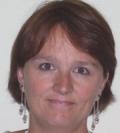Burris, who cites her involvement with both the National Association of Legal Assistants and the North Carolina Paralegal Association as highlights of her career, encourages students and new paralegals to polish and perfect their networking abilities.
"Networking is very important in the paralegal profession…get involved with a paralegal association. Paralegal associations generally offer a discounted rate to student members; they also often provide discounts to seminars. Associations are a wonderful way to meet paralegals who work in many different settings and areas of law."
After receiving a bachelor's degree in interpersonal and organizational communications from the University of North Carolina at Chapel Hill, Burris began working as a paralegal with Closure Medical Corporation in 1999.
Rather than seeking out employment in the legal field, said Burris, "I actually stumbled upon it. I was looking for a new job. Closure was located very close to home, and I was initially impressed by its technology. After I met with the general counsel and other employees, I was even more impressed."
Having no previous legal experience or education, Burris started in a paralegal certificate program at Meredith College in 2000.
Burris got her certificate by taking classes at night, and she encourages future paralegals to consider many different kinds of programs for their legal education.
"There are so many types available, including baccalaureate degrees, associate degrees, certificate programs, ABA-approved programs, and online programs. There are pros and cons to each type."
She also notes that familiarity with a paralegal's work environment is a valuable asset when searching for that first job.
"Internships allow you to get your foot in the door and gain some experience."
While she was taking night classes for her paralegal certificate, Burris spent her days working very closely with the general counsel of her company, a patent attorney. In fact, the legal department comprised just the two of them. With so much one-on-one time with the general counsel, Burris was able to get involved in many aspects of her field immediately.
"I spent a lot of time on patent and trademark prosecution and participated in all company project/product teams. I drafted various agreements, including confidential disclosure, animal and clinical study, and consulting agreements. When situations arose, I would assist in employment, FDA, real estate, and corporate compliance issues."
Now, Burris works at a larger firm—Sony Ericsson Mobile Communications—in its intellectual property department, along with four attorneys, a patent agent, and three other support staff.
"When I started working at Sony Ericsson, I was supporting the patent prosecution side, which involves interacting with our inventors—our clients—and outside counsel taking an idea or invention from concept through the patent process with either the United States Patent and Trademark Office or foreign patent and trademark offices.
"I additionally draft confidential disclosure and licensing agreements and work on estimates and actuals for the patent budget. I have since shifted more into the licensing and patent-litigation side."
While she has remained employed in the same area of legal practice for six years, Burris says "the challenge and the variety" are what she most enjoys about her job.
"The law is always changing, and I am always learning. I regularly attend seminars—not because I need the continuing legal education credits, but because it would be a detriment to stop learning and challenging myself."
However, Burris also faces the same challenges as any paralegal in assisting clients who request immediate answers to legal questions and do not understand that paralegals do not have the authority to give legal advice. Still, she strives to provide excellent customer service to those clients in every acceptable way.
"I have found that it helps to smooth ruffled feathers by keeping the lines of communication open and keeping them apprised of new information and being responsive to their requests or inquiries," she said.
Careful listening; a helpful, responsive attitude; and command of the spoken and written word are parts of the ideal skill set that a good paralegal must master. Being organized and committed to research are also among those abilities Burris considers "crucial to being an effective paralegal."
"I love to read," said Burris, "and I have always been a good listener, since I was more of an observer. My other big hobby is genealogy," which, Burris notes, allows her to continuously improve her researching methods.
With all her experience as a leader in the paralegal field, Burris said that the challenges always provide opportunities for growth, overcoming those challenges leads to great personal satisfaction, and monotony at work is never a problem for her.
"No two days are the same…I feel that the sky is the limit; I would not change a thing."




